Master of International Business
Program length
- 30 credits
- Full Time: 1 Year
- Part Time: 1.5 to 2 years
Application deadlines
Spring
- International applicant deadline: July 15
- Domestic & scholarship consideration deadline: Sept. 1
Fall
- International applicant deadline: Jan. 15
- Domestic & scholarship consideration early deadline: March 1
- Domestic final deadline: May 1
Schedule format
- On campus
- 7-week modules
Why earn a Master of International Business from Warrington?
From finance to marketing to supply chain management, business professionals understand that cross-cultural fluency is key to connecting with clients, suppliers, customers and coworkers.
The University of Florida Warrington College of Business’ Master of International Business degree recognizes this reality and trains you for a career, whether you go corporate or embrace entrepreneurship.
Geared toward undergraduate business majors and minors, this immersive, globally focused program kicks off with an introduction to business fundamentals. Then, you’ll tailor your electives based on the roles or companies you intend to pursue.
While this approach gives you a glimpse of how modern-day organizations operate, nothing is quite as eye-opening as heading straight into the action.
- See and address the challenges affecting international companies during a required global experience.
- Explore these issues further during an optional study abroad trip.
- Consult businesses close to home in Gainesville.

Request information
Warrington’s MIB program by the numbers
Broaden your horizons to do business better.
$15,921
Florida resident tuition and fees
$38,242
Out-of-state tuition and fees
No GMAT
or GRE
Test scores are not required to apply.
25+
Study abroad opportunities
85%
Of students enter through the combination degree program.
#4
In the nation for graduate international business programs.
Eduniversal, 2024 Best Master’s and MBA Ranking
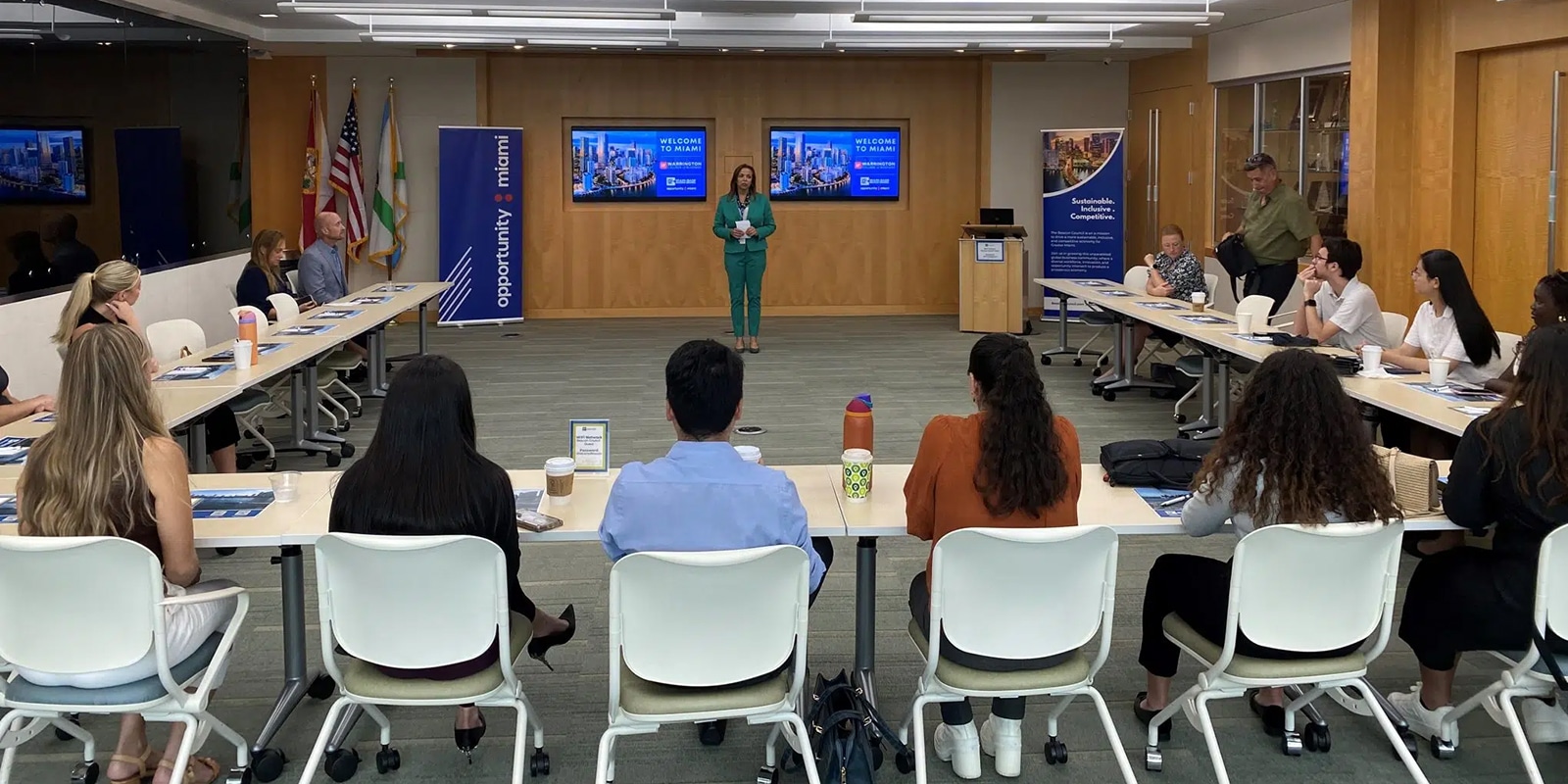
Project-based learning
What’s your approach to collaboration? Integrated group projects strengthen your problem-solving, critical thinking and interpersonal skills in preparation for similar team and cross-divisional workplace assignments.
About the MIB degree
From marketing to entrepreneurship, globalization influences how all businesses operate in the present.
Warrington’s MIB degree program dives into business fundamentals through this lens. You don’t just learn about finance, management, economics and marketing but do so with the goal of understanding trends and tackling concerns important to companies with a presence in multiple countries.
You’re also asked to picture your place in this dynamic structure and establish your niche through electives. Topics take a boundary-expanding look at management, entrepreneurship, finance, information systems, marketing, real estate and supply chains and introduce you to your future employer’s expectations.
Because doing is the first step to delivering, you and your fellow MIB students practice these concepts right off the bat — first in group projects and then in consulting assignments. As you prepare to enter the job market, these results illustrate the value you’ll offer your future employer.
The MIB program consists of 30 credits (14 core credits and 16 elective credits).
14 credits required:
16 elective credits:
Master of International Business formats
When you aspire to enter or get ahead in a field without limits, you shouldn’t be confined by a single format:
- Traditional on-campus: Warrington designed the on-campus MIB program for current students and recent graduates who seek to give themselves an edge in the global economy.
- Bachelor’s/master’s combination: An option for on-campus and online formats, double-counting credits allows current University of Florida undergraduates to complete the MIB and their bachelor’s in as few as four years — a move that saves both time and money. Learn more about our bachelor’s/master’s combination programs.
- Master’s/master’s and master’s/doctoral programs: Enrich your understanding of business operations by pairing another master’s or Ph.D. with Warrington’s MIB degree. You’ll apply to both programs separately and, if accepted, create an individualized plan of study to fulfill all requirements. Learn more about our master’s/master’s and master’s/Ph.D. degree programs.
- Online: Globalization means you can participate in the economy from anywhere. So enrich your knowledge with fully online courses and the required Global Immersion Experience. Learn more about the online MIB program.
MIB tuition & fees
| Florida resident tuition | $15,921 |
| Out-of-state tuition | $38,242 |
| Professional development fee (domestic applicants) | $350 |
| Professional development fee (international applicants – Fall) | $650 |
| Required Global Immersion Experience (estimated travel and program fees) | $4,000 |
2025 tuition and fees based on 30 credit hours
Tuition is due two weeks after the start of each semester (for both modules) and is calculated based on the credit hours for which you’re registered.
Check the Bursar’s website for the latest fee schedule.
Scholarships and tuition assistance
Push your understanding of business further without accruing significant debt.
Whether you’re in the U.S. or arriving from overseas, an incoming graduate student or an undergraduate getting a head start, multiple forms of tuition assistance help lower the cost of our already-affordable international business program:
- Scholarships: Newly admitted students may be eligible for a limited number of merit and need-based scholarships ranging from $500 to $5,000. Scholarship application instructions will be emailed to eligible students two weeks prior to the scholarship application deadline. Awards are open to domestic and international students.
- Florida Bright Futures: Are you surging ahead through the combination track? Florida Bright Futures recipients who graduated with their bachelor’s degree in seven semesters/105 credits or less may be eligible to apply remaining Bright Futures funding to the first semester of the MIB program. Contact undergraduate Financial Aid for guidance.
- Florida Prepaid Students: Once accepted into the combination program, Florida Prepaid students may apply any remaining prepaid funds toward graduate tuition.
- The Academic Common Market: This reciprocity agreement with neighboring states enables students in Alabama, Kentucky, Louisiana, Maryland and Tennessee to pursue the on-campus Master of International Business degree at the University of Florida at in-state tuition rates. Learn more about this program.
Please refer to scholarship application deadlines and eligibility by clicking
below.
Application instructions and deadlines
| Spring (January) | Deadline | Applicant notified by |
|---|---|---|
| International applicant deadline | July 15 | Sept. 15 |
| Domestic & scholarship consideration deadline | Sept. 1 | Oct. 15 |
| Fall (late August) | Deadline | Applicant notified by |
|---|---|---|
| International applicant deadline | Jan. 15 | April 15 |
| Early deadline & scholarship consideration deadline | March 1 | April 15 |
| Final deadline | May 1 | June 15 |
Domestic applicants: The criteria and assessment of applications remain the same for both the early and final deadlines. The distinction between the early and final deadlines is in the timing of when the decision letter is issued.
If you cannot finalize your application under the deadline, contact us to determine if we can accept late applications.
Admitted applicants will be asked to accept their admission offer within two weeks of receiving their offer letter.
The instructions below apply to the on-campus, traditional applicants who will complete the bachelor’s degree before the start of the program. Combination (bachelor’s/master’s) degree applicants should follow the combination degree application instructions, while those applying for the Online MIB should follow that program’s application instructions.
Eligibility
- Bachelor’s degree from accredited institution
- Business major or minor
- Open to non-business majors/minors with exceptional academic record and international experience
- 3.0 upper division undergraduate GPA (U.S. degrees only)
Applicants are evaluated holistically and assessed on their individual experiences and competencies. Meeting the minimum criteria does not guarantee admission.
Instructions
- Submit the Graduate School application and pay the application fee.
- When selecting your program, choose the following:
- Location of intended program: Gainesville
- Program of study: International Business (listed under Business Administration)
- Intended term: Spring (January start) or Fall (August start)
- Degree goal: Master’s
- All applicants will be required to submit the Information for Residency Classification when they apply to Graduate School. Learn more about Establishing Residency for Tuition Purposes.
- Upload a statement of purpose (400-600 words) that explains your motivations for applying, why you believe you are good candidate, and how the program will help you achieve your career goals.
- Provide a 1-2 page resume or curriculum vitae that must cover all post-high school education and employment, as well as information about ongoing international affiliations and research funding. Also include your experience, accomplishments and involvement. Elaborate on your duties and responsibilities, as well as leadership activities and time commitments outside of the classroom.
- Enter contact information for two recommenders. After you submit the application, the recommenders will receive an email with instructions.
- Recommendations must be someone who has supervised you (professor, employer, adviser, volunteer coordinators). Letters from students, peer leaders, or relatives will not be accepted.
- Upload a copy of transcripts (in English and native language) from all post-secondary institutions. Unofficial transcripts are accepted for admissions processing. If admitted, official transcripts must be submitted in first term of study. UF students: Do not submit a copy of the UF transcript.
- International candidates
- The UF Office of Admissions will not recognize 3-year bachelor’s degrees from India, Australia, Bangladesh, Canada (excluding Quebec), Nepal and Pakistan. Three-year bachelor’s degrees from other countries are reviewed on an individual basis.
- Refer to requirements for international students, including English proficiency scores (TOEFL/IELTS). Warrington interviews candidates who attended a non-U.S. institution as part of the admissions process.
- Upload a copy of the diploma and degree certification in English and native language. Applicants who have not received their diploma must submit a letter from their institution stating the program of study and expected graduation date. If admitted, the official diploma and degree certification must be presented during first term of study.
This is how the world works

Global Immersion Experience
How do other countries do business? This required trip takes you inside one of the world’s leading economic regions for a detailed, firsthand overview of its practices and industries. Over the course of a week, you’ll tour its top companies and tackle an ongoing problem with a group consulting project. Your itinerary also includes time to explore some of the world’s best-known landmarks and natural wonders.

Study abroad
Set your sights further with an optional self-guided adventure at one of our partnering institutions. Over two weeks to eight months, you’ll acquire a more personal international perspective from your new peers and professors and have many opportunities to develop cultural awareness and problem-solving skills.

GatorNest consulting project
Deliver that fresh, forward-looking solution as you help real businesses strategize through real problems and hone your entrepreneurial foundation.
Courses
The MIB program consists of 30 credits (14 core credits and 16 elective credits). Through 16 elective credits, you’ll craft your own educational itinerary — from exploring across disciplines to advancing your undergraduate studies. Review the courses below that you’ll experience in the program.
Core courses
Fundamentals of International Business
Examine the environment of international business and many operational tools and characteristics.
Global Strategic Management
Provide students with a fundamental knowledge of the theory and application of strategic management.
International Finance
Provides an introduction to students interested in international finance.
Macro Finance
Introduces students to how economies work in an international context.
Professional Communication
Become an expert in delivering high-impact presentations and engaging speeches.
Professional Writing
Learn how to write well at work using our effective strategies.
Global Immersion Experience
Strengthen your understanding of global business and gain hands-on consulting experience with a foreign client through the Global Immersion Experience course, which includes a one-week experience abroad.
Capstone Project
Enhance global strategic acumen by steering an international company through an online business simulation.
Electives
Courses vary by semester. Admitted students will work with academic advisors to develop an elective course plan.
Advanced Business Systems Design and Development
Learn the basics of systems analysis and design.
Advanced Marketing Management
Designed to teach marketing management techniques that will be applicable in a business setting.
Analytics Programming
Emphasis is on programming constructs for analytics and object-oriented concepts.
Art and Science of Negotiation
Advance your business negotiation skills through the application of principles and strategies.
Asset Allocation
Learn about the variety of asset classes and the unique needs of different investors.
Asset Valuation, Risk, and Return
Learn concepts and techniques that form the foundation of modern finance.
Building and Managing Brand Equity
Focuses on the management of brand equity, which is the value of the brand to the organization.
Business Database Systems 1
Introduces concepts and practices of modern database systems.
Business Database Systems 2
Understanding the strategic possibilities at the intersection of business and technology.
Business Intelligence
Introduces techniques to extract information from the volume of data an organization can use.
Business Objects
Provides an understanding of the technologies that enable distributed enterprise and cloud computing.
Business Programming
Teaches how to develop information systems solutions to real-life problems by following the systems development lifecycle.
Business Telecom Strategy and Applications
Covering the fundamental principles and practices of network and data security.
Business-to-Business Marketing
An in-depth analysis of the challenges and opportunities that characterize business-to-business markets.
Capital Structure and Risk Management
Students gain a set of tools for strong financial decision-making.
Capitalism and Regulation
Learn how financial markets and institutions add value to society and require regulations for success.
Compensation in Organizations
Relevant practical and theoretical information regarding the design of reward systems that support organizational strategies.
Creativity in Entrepreneurship
Examination of the creativity process and organizational environment of several innovative organizations.
Customer Analysis
Start to think analytically about customers and the firm’s marketing strategy.
Customer Relationship Management
See the considerable impact customer value can have on a company’s long-term performance.
Cyber and AI Governance in Business
Instructs on the structures and policies used by organizations to ensure they’re using cyber technologies responsibly.
Data Analysis and Decision Support
A survey of some models and methodologies with an emphasis on business applications.
Data Analysis Skills
An introduction to data analysis skills with a primary focus on using Python.
Data Visualization
Teaches students to apply key data visualization principles and techniques.
Doing Business in Asia
An overview of culture and management practices in major East and Southeast Asian economies.
Employment Law
A comprehensive overview of the legal and ethical considerations involving employment law.
Emerging Markets Finance
An introduction to investing and finance in the emerging markets.
Financial Accounting
Grow your knowledge of financial accounting and apply it to realistic accounting problems.
Fundamentals of International Business
Examine the environment of international business and many operational tools and characteristics.
Fundamentals of Real Estate Development
An introduction to the real estate development process from the perspective of the owner or developer. Elective.
Game Theory Applied to Business Decisions
Examining the main ideas and tools in the field of Game Theory and their applications to business strategy. Elective.
Global Strategic Management
An introduction to strategic management addressing why some companies are more successful than others. Elective.
Hospitality and Tourism Marketing
Provides a foundation in branding and marketing for the hospitality and tourism industry. Elective.
Human Capital Analysis
Introducing students to the statistical tools that enable evidence-based HR strategies.
International Aspects of Human Resources
Identifying the influence of economic, legal, and cultural factors on international human resource management.
International Finance
Provides an introduction to international finance.
International Marketing
Exploring the global marketplace and factors that influence the decision-making of marketers.
Introduction to Python
Designed to teach Python as a tool to create business analytics and visualization applications.
Introduction to Managerial Statistics
Lays the foundation for applying quantitative and qualitative tools for making better managerial decisions.
Introduction to Real Estate
An overview of the complexities and opportunities that are associated with the real estate industry.
Latin American Business Environment
An overview of the economic, political, social, and cultural characteristics of business in Latin America.
Leading Teams
Equips you with the knowledge and tools necessary to successfully lead high-performing teams and organizations.
Managerial Accounting
An overview of managerial accounting for non-accountants.
Managerial Decisions
Provides an analytical foundation for making sound managerial decisions.
Managerial Economics
Learn how to develop a microeconomic approach to decision-making in business.
Managerial Quantitative Analysis
An introduction to the concepts and applications of management science, which uses mathematical models to solve problems.
Marketing Analytics
Learn how to perform explanatory and predictive analytics functions.
Marketing Ethics
Analyzes ethical issues commonly faced by marketers and consumers.
Mergers and Acquisitions
Examines the accounting and financial reporting of business combinations.
Open Economy Macrofinance
Introduces students to how economies work in an international context.
Organizational Behavior
Learn how organizational behavior helps manage change from various perspectives.
Organizational Staffing
Offers a broad view of the entire staffing process from beginning to end.
Principles of Logistics and Transportation Systems
Learn the analytics of modeling and optimizing logistics systems.
Problems and Methods in Marketing Management
A strategic perspective to marketing while emphasizing issues relating to sustainable competitive advantage.
Product Development and Management
A structured way of thinking about product development.
Production and Operations Management
Learn the areas of process management and supply chain management.
Professional Selling
This teaches the importance of the selling role and provides basic professional selling skills.
Project Management
Learn about the organizational role of the manager.
Purchasing and Materials Management
Learn about the industrial and institutional purchasing cycle for operating supplies.
Revenue Management in Hospitality Business
Provides conceptual and practical knowledge regarding hospitality revenue management.
Secondary Mortgage Markets and Securitization
See the opportunities and risks associated with mortgage pools.
Special Topics in Finance
Highlighting special topics in finance fields of study.
Statistical Analysis for Managerial Decisions
Provides the essentials of statistics for business decision-making.
Strategy and Disruption in Technology Industries
Explores the strategic issues related to the management of new technologies and business systems.
Study in Valuation
Learn the details involved in creating a professional valuation analysis.
Supply Chain Analytics
Demonstrates the effectiveness of analytical tools in coordinating supply chain activities.
Related programs
There’s more than one way to build on your existing business knowledge and experience. Continue plotting your path with the following:
What can you do with a master’s in international business?
MIB graduates typically begin applying their global business expertise in a range of domestic firms, while some may move into overseas roles as their careers progress. Others opt for further graduate study or launch their own ventures.
$78,000
Average salary for MIB graduates.
963K
More positions for business professionals through 2033.
U.S. Bureau of Labor Statistics
9%
Greater demand for financial analysts is projected through 2033.
U.S. Bureau of Labor Statistics
Where our graduates work
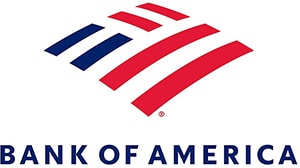






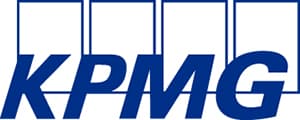



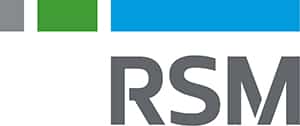
Job titles
- Account Executive
- Account Manager
- Analyst
- Associate
- Brand Manager
- Business Analyst
- Buyer
- Client Success Associate
- Commercial Leadership Program
- Consultant
- Contract Specialist
- Corporate Banking Analyst
- Credit Analyst
- District Manager
- Financial Analyst
- Global Investment Banking Analyst
- Human Resources Leadership Development Program
- Investment Banking Analyst
- Marketing Analyst
- Private Banking Analyst
- Project Manager
- Research Analyst
- Risk & Compliance Consultant
- Sales Leadership Development Program
- Sales Management Associate
- Territory Manager
- Wealth Analyst
Faculty
Our faculty’s insights from the international corporate world or from tracking global economic trends directly influence what you learn in class, adding real-world context to widely applied concepts.

Dr. Andy Naranjo
Susan M. Cameron Professor Chair, Eugene F. Brigham Department of Finance, Insurance & Real Estate, Director, International Business Center
Director, International Business Center
Research areas: Asset Pricing, Capital Market Linkages and Flows, Corporate Finance, Financial Economics, Information Flows and Processing, International Finance, and Real Estate Finance
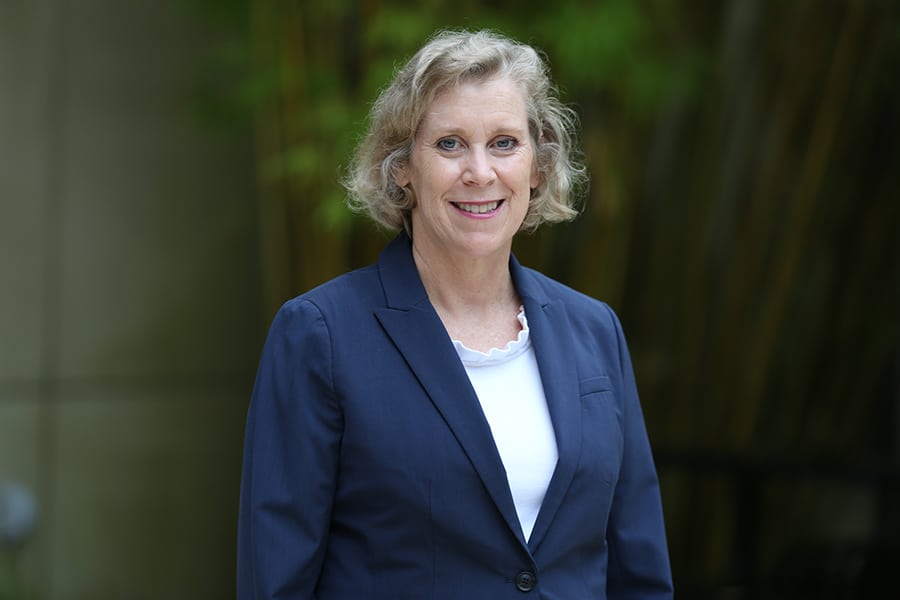
Dr. Janice Ellen Carrillo
Judy A. Warrington Professor in Business
Research areas: Knowledge Management, Management of Technology, New Product Development, Operations Management, Supply Chain Management, and Sustainability
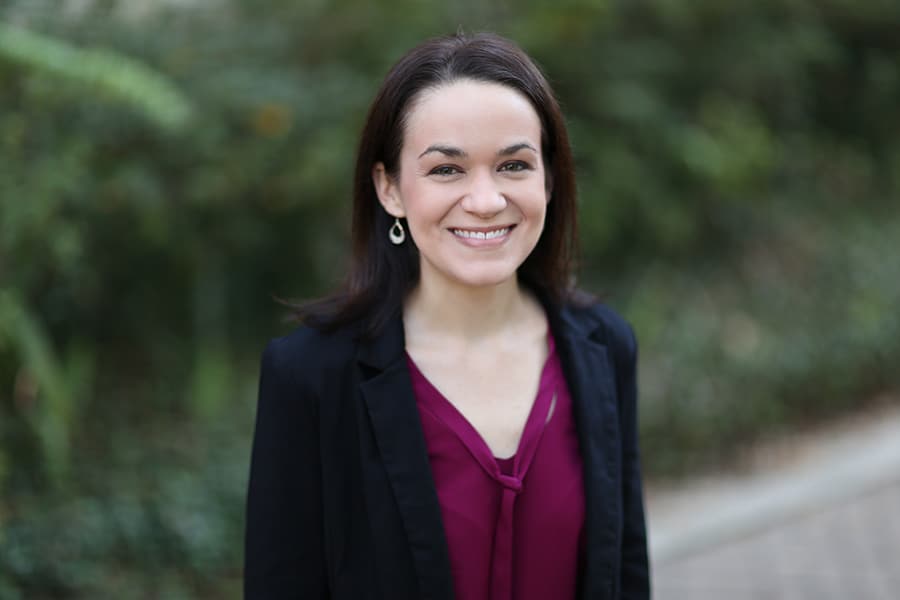
Dr. Rachel Slivon
Senior Lecturer and Director, Management Communication Center
Areas of focus: Professional Communications, Professional Writing
Global immersion trip shaped master’s experience
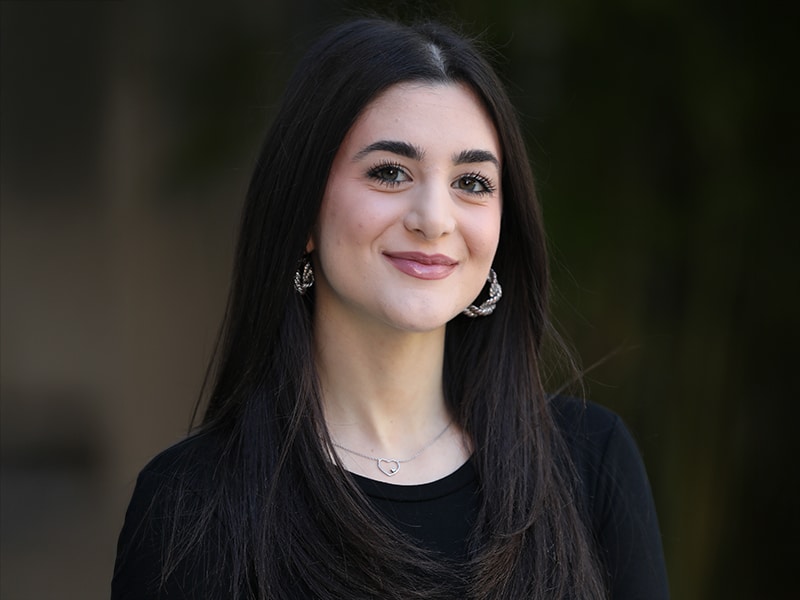
My GIE trip to Peru was an unforgettable experience. Collaborating on a consulting project for SISSAI, a jewelry company, allowed me to apply classroom concepts in a real-world setting while gaining valuable insights into Peru’s economy and entrepreneurial ecosystem. This immersive journey deepened my appreciation for Latin American cultures and business practices while also strengthening my connections with peers and local professionals. The relationships I built and the collaborative spirit of the experience made it truly impactful.
Chiara Bifano (MIB ’24)
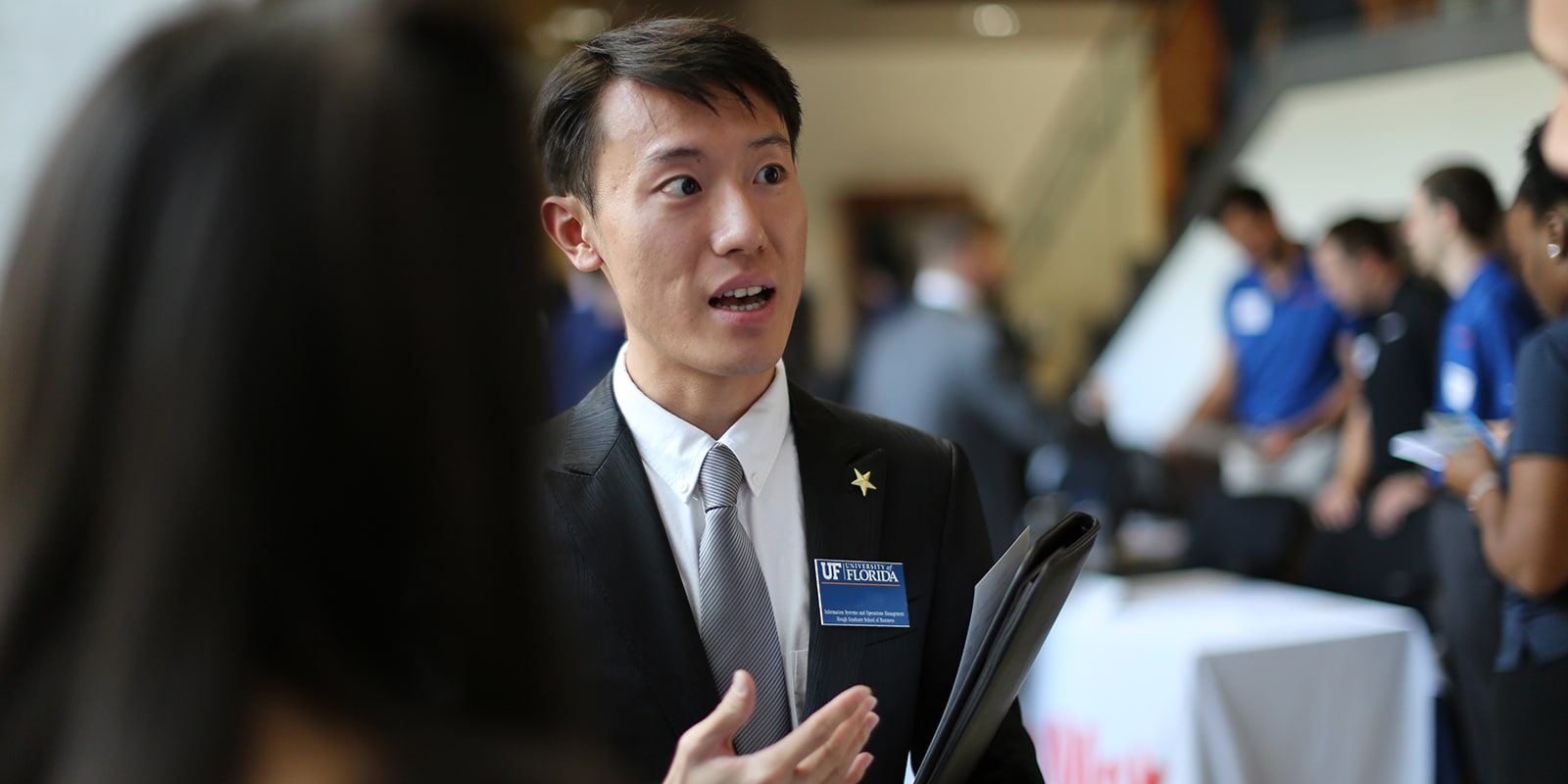
Career preparation
What are your goals — and how will you get there? Through personalized guidance, Business Career Services helps you develop your route through dedicated career fairs, professional development opportunities, workshops and Warrington’s established employer partnerships.
Information sessions

A degree for boundless career possibilities
There’s a whole world ahead of you. Warrington’s Master of International Business program prepares you to communicate with it, make connections across it, and enrich it wherever you find yourself.
Contact
Master of International Business program office
352-273-0668
Email the Master of International Business program office


